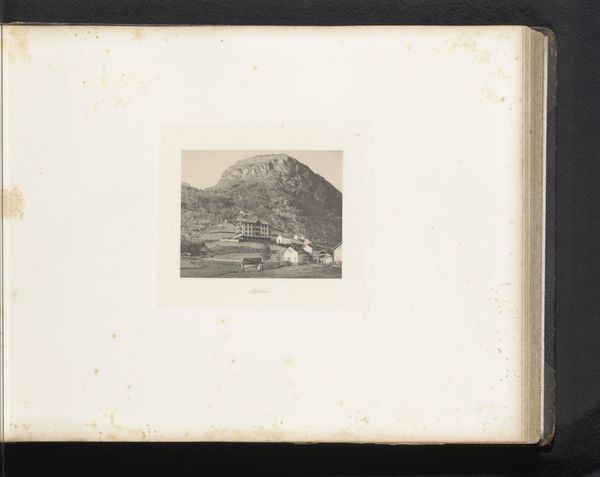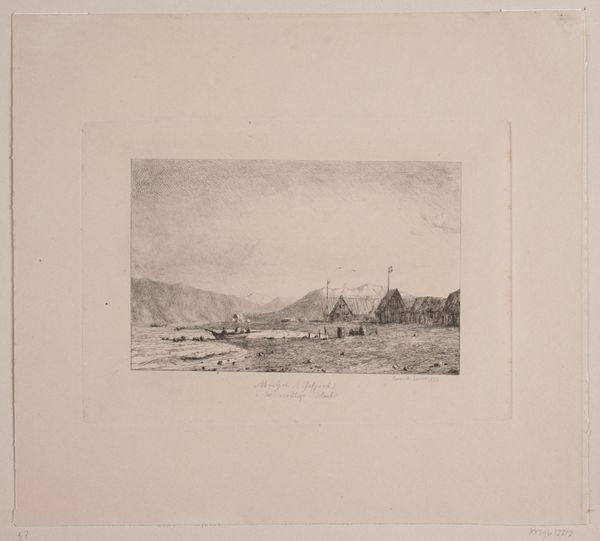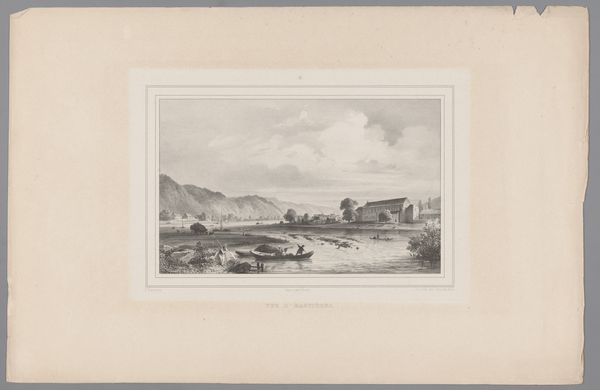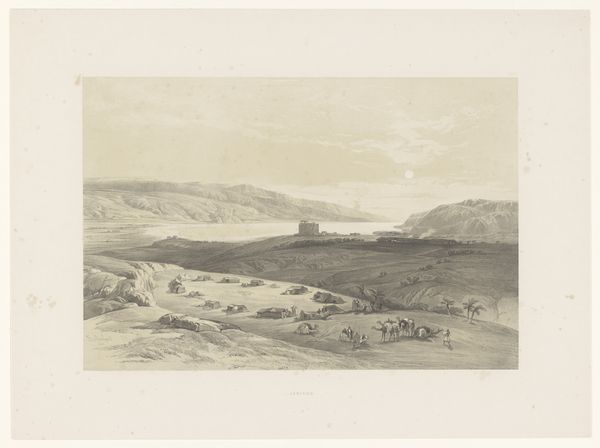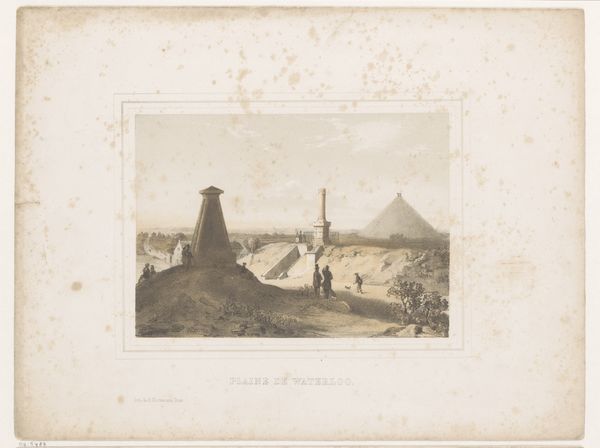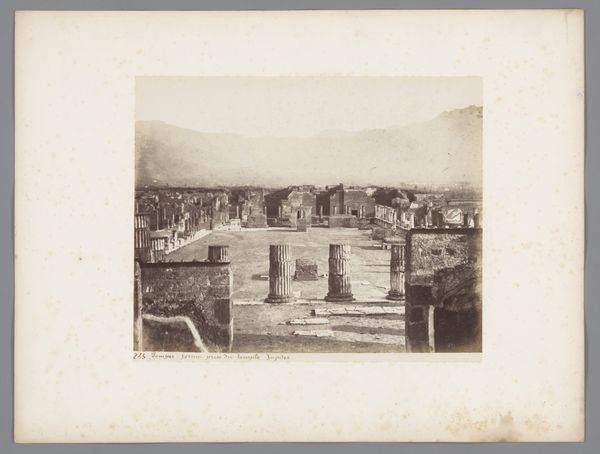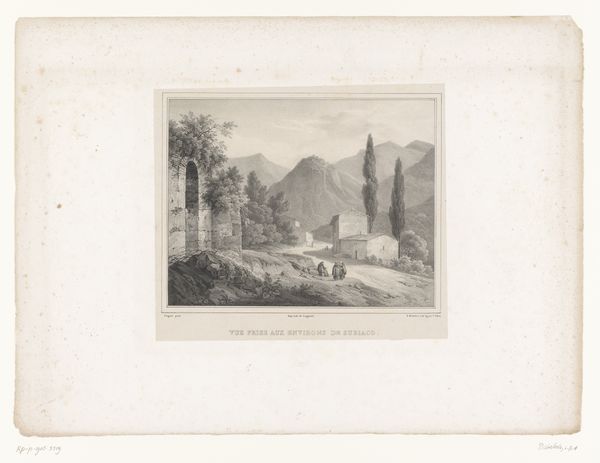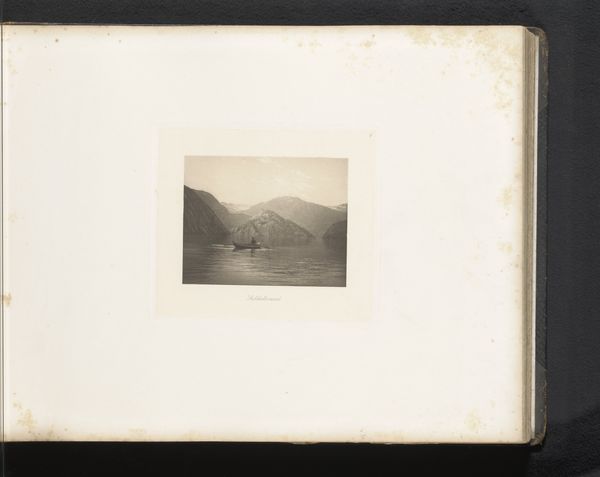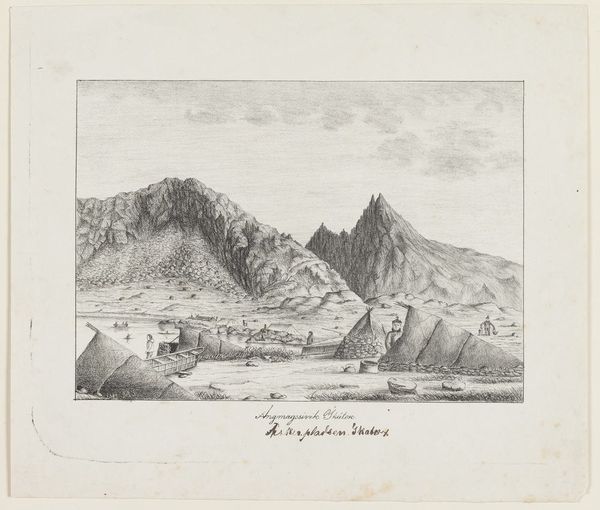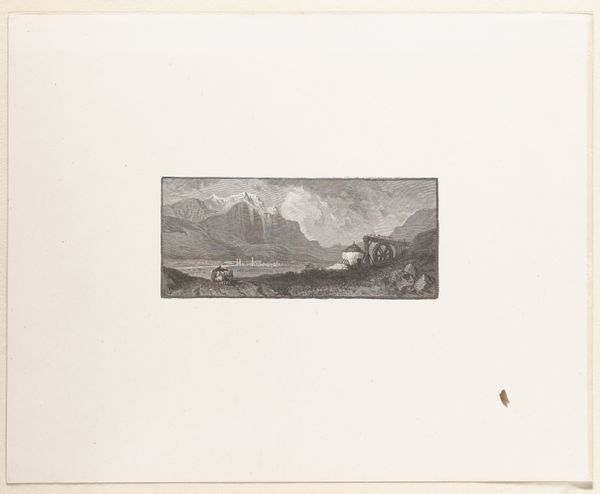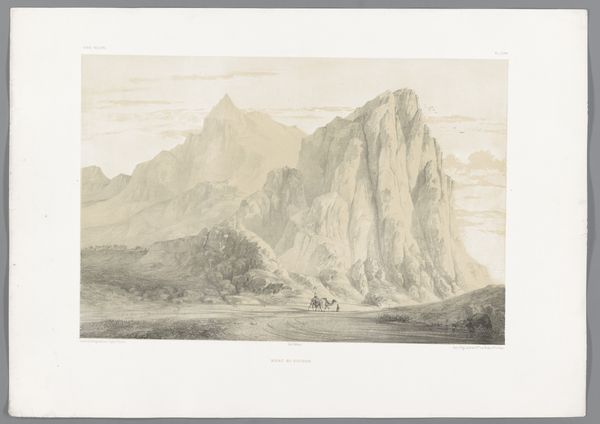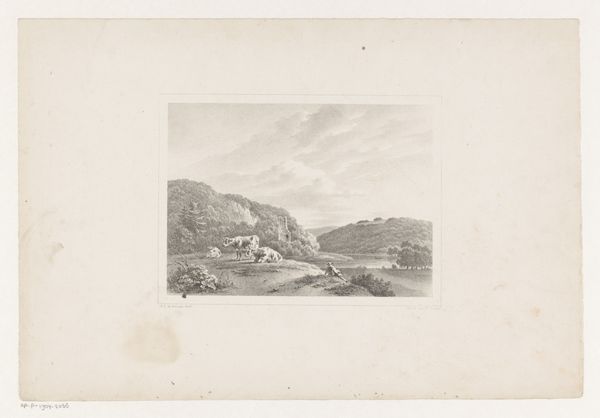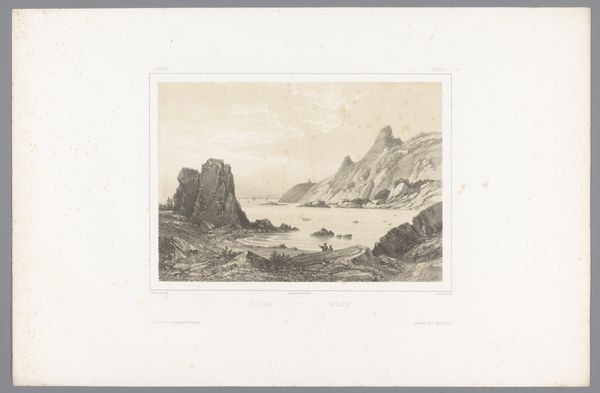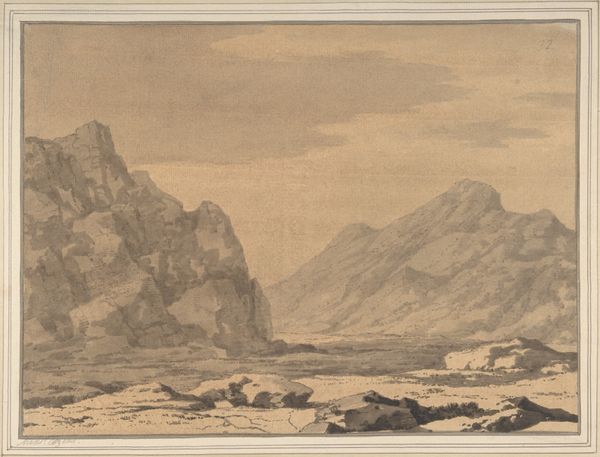
Waterput met koepel en ondergrondse passage, Baba Wali Katal, bij Kandahar, Aghanistan c. 1870 - 1890
0:00
0:00
photography
#
landscape
#
photography
#
orientalism
#
islamic-art
Dimensions: height 228 mm, width 283 mm, height 337 mm, width 395 mm
Copyright: Rijks Museum: Open Domain
This photograph of a water well near Kandahar, Afghanistan, was taken by Benjamin Simpson. It’s a straightforward albumen print, the dominant photographic process of the mid-19th century. The process involved coating paper with albumen, or egg white, then sensitizing it with silver nitrate. The resulting print has a distinctive, slightly glossy surface and a warm, sepia tone, both clearly visible here. It’s a direct positive process, meaning the final image is made directly from the original negative, without further manipulation. Beyond the immediate clarity of the image, the albumen print process also allowed for the efficient reproduction of photographs, making them more accessible to a wider audience, and allowing for distribution throughout the British Empire. Simpson was a military man, and his images were of interest as documentation. We might also note the labor involved in the well’s construction, a testament to Afghan ingenuity in a challenging landscape. So in a way, this photograph is a document of many processes: photographic, but also social and material.
Comments
No comments
Be the first to comment and join the conversation on the ultimate creative platform.
